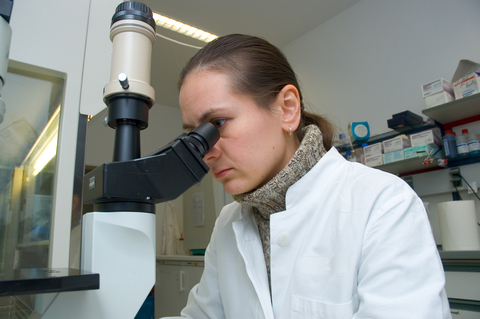Researcher gets £35,000 funding to improve lung cancer detection

Dr Charles Brilliant, a researcher based at Swansea University, has received £35,000 from Innovate UK’s ICURe Awards.
Business News Wales reports Charles Brilliant will use the funding to further his research using infrared light to determine the molecular structure of sputum to detect lung cancer.
It means that patients could get an initial diagnosis in their GP surgeries, rather than waiting to attend a hospital appointment, using a method that is faster and non-invasive.
Charles Brilliant said “Lung cancer can cause structural changes to airway mucus, which is how it can be detected through the use of infrared spectroscopy.
“Sputum is a horrible and thick substance and when it dried, it would dry with a bumpy pattern which would scatter the infrared light.
“We had the idea of using a mesh that the mucus would be forced into it, rather than being on a flat surface, which encourages the mucus to dry flat, and reduced the scattering of light. It opens up so many possibilities of moving what is currently an expensive technology into the clinic.
“A patient could turn up at their GP surgery with symptoms and produce a sample there and then, with a result being available in as little as 10 minutes.
“This test won’t tell you where the cancer is; it only detects that it could be there. So, the patients will still have to go through follow up tests in hospital. But, there is huge value of it being in GP surgeries as a pre-screening or triage tool.
“Firstly, it’s very non-invasive. I’ve seen it many times where a patient does not go to get checked up for fear of what happens next, and what they have to go through.
“Secondly, it lends itself very well to mobile clinics. It could increase uptakes of screening programmes and therefore could improve early diagnosis. The vast majority of lung cancers are diagnosed at stage three or four where survival is poor, but if you catch it at stage one, you have a huge increase in your survival rate.”
He’s now using the funding from ICURe to develop the technology further.
He said “We’re testing it out and what other applications there could be for this.
“Opticians and dentists could use it; so much can be detected in tears and saliva.
“The work I’m doing could really help people. I can see that there is a way to improve quality of life and even save lives.”
The work came about through Charles Brilliant’s PhD at Swansea University.
He said “I always wanted to do research.
“Throughout my PhD, that research grew into the area of lung cancer. It took three years for the research to finally start working, which led onto everything else.
“If AgorIP wasn’t part of this, it wouldn’t be happening. They have funded me, and the team is so accessible and helpful. I’ve always felt that they are really deeply involved, and I’m incredibly grateful.
“I’m thrilled about the funding. It is a massive responsibility because it’s not a small amount, and I want this to be successful. It’s quite daunting but really exciting.”
AgorIP, supported by Swansea University, and the European Regional Development Fund through the Welsh Government, brings together academics, clinicians and businesses to pioneer research into cutting edge technologies and drive commercial success.
Berna Jones, one of AgorIP’s Technology Transfer Officers, said “I would like to congratulate Charlie on securing the Innovation to the Commercialisation funds from Innovate UK, ICURe programme.
“ICURe is the number one university business incubator in Europe for the third year running, and number one globally in 2015/2016 so this is a very prestigious win.
“Charlie already has been in Miami and New Zealand to validate his technology and will be travelling around the world in the next two months to take on the 100 people challenge set by the ICURe programme. What a brilliant opportunity for Dr Brilliant!”








